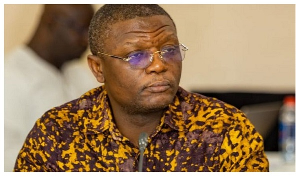The sluggish growth of oil palm production in the country, in the face of the yawning demand for Fresh Fruit Bunches (FFB) of the commodity, has pushed up the domestic market price from GH¢150 per tonne in 2013 to between GH¢350-GH¢400 as at August 2015 -- representing a percentage price increase of about 160%.
Aside from the traditional uses of palm oil such as food consumption, industrial demand -- especially for small-scale soap manufacturing -- has increased in recent times, thus the widening imbalance between production and market demand.
Speaking in an interview with B&FT, Faustina Adjei -- CEO of Tina J Enterprise, a soap manufacturing company at Duayaw-Nkwanta in the Brong Ahafo Region -- said the shortfall in supply of the commodity has accounted for the booming importation of crude palm oil (CPO) and its refined products amidst an influx of sub-standard ones.
According to the Oil Palm Development Association of Ghana, about 48,000 tonnes of substandard palm oil was illegally imported into the country within a period of six months as at March this year.
Mrs. Adjei pointed out that the sharp rises in price of palm oil is adversely affecting cost of production, which thereby makes locally produced soap such as bar soaps, brilliant, liquid soaps, African soap and other detergents relatively expensive when juxtaposed with the influx of imported soap products.
“Lack of interest in pushing many people to venture into palm oil cultivation, the seasonality of the commodity, and the increasing number of small-scale industries that require palm oil as a raw material are major factors swelling cost of the commodity, particularly during off-seasons,” she noted.
The small-scale entrepreneur therefore called for holistic and concerted efforts by all relevant stakeholders to revolutionise the oil palm industry so as to help guarantee competitive supply for industries, and food consumption as well.
The oil palm production sector is entangled in a lot of challenges, defeating its economic potentials. Statistics indicate that oil palm is the fifth-largest cash crop in Ghana, in terms of cultivated land size after cocoa, maize, cassava and yam. It is estimated that about 305,758 hectares have been planted across the country.
The Oil Palm Development Association of Ghana has revealed that Ghana needs to double its production rate in the next decade and half if the country wants to be self-sufficient. But farmers -- who are the principal agents expected to lead production output -- growth complain about lack of financial support from government and banks, no input-subsidies and quality extension services, among others needed to nourish their desire to grow more.
Business News of Wednesday, 16 September 2015
Source: B&FT
















